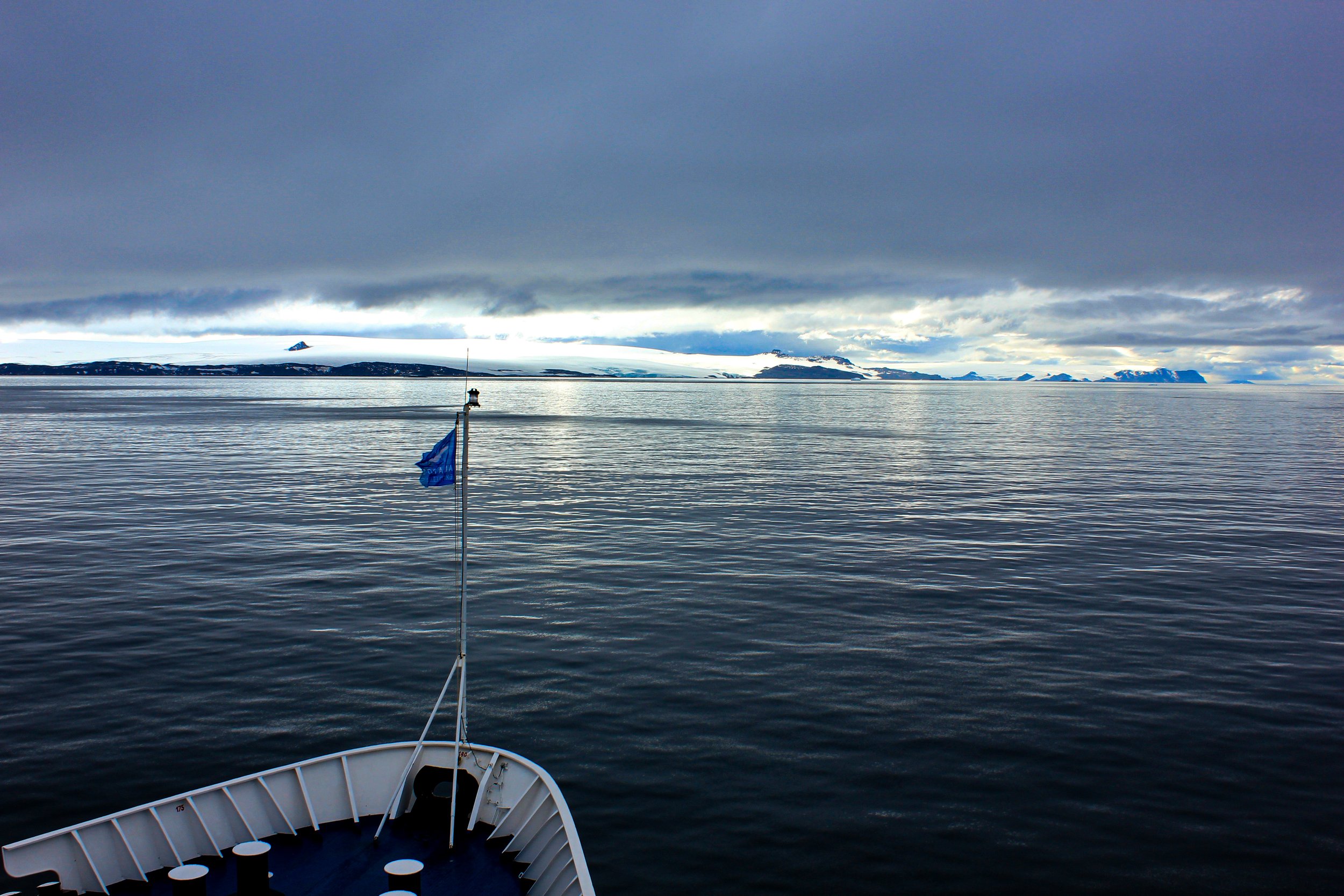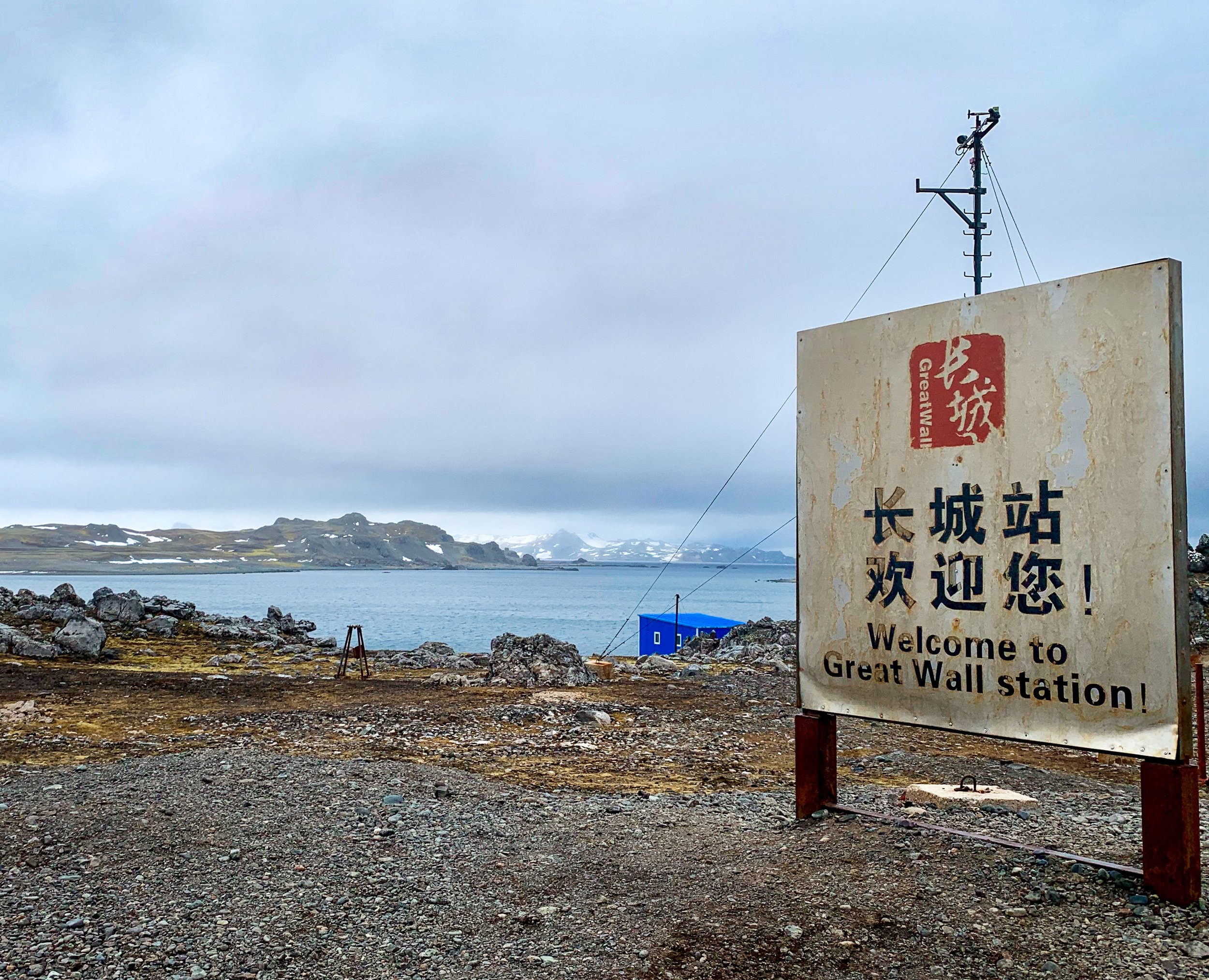Polar Blog Series Part I: The Antarctic
Chapter 2: Water and Ice
I vividly remember our approach to Antarctica. We slowed down, as if to proceed carefully through a forbidden environment. The water resembled smooth glass as our ship glided through it noiselessly. It was cold. My hands grew numb while trying to snap pictures. Icebergs big and small littered the Southern Ocean in every direction. The occasional bird swooped past the ship; birds we had never seen before. A lonely seal far away rested on a smaller patch of ice. And individual penguins periodically zoomed through the water--they moved so fast! All of this newness unfolded gradually as we advanced toward the peninsula. And then it was within view: The White Continent.
Drawn to the Antarctic glow at first sight
Seeing the landscapes for the first time was a surreal experience. It's as if you're transported to another realm. A desolate realm, but one of incomparable beauty. The sky was low, providing perfect visibility for the land growing larger as we got closer. The sun illuminated the edge of the most remote piece of land on Earth, the snow shimmering in the light. Foreboding mountains appeared like sentries, guarding an ancient domain. The reflection of the gray-blue water called us toward it. I'm not sure I've ever experienced a more wild place.
Mountains and glaciers dominate the horizon
You can feel the emptiness around Antarctica, and you can inexplicably sense its remoteness. Perhaps because it takes so much effort to get there, but when viewing the continent from the prow of a ship, you know you're looking at a land less visited. Wildlife was present and easily spotted, but we 300 souls were the only humans within miles. You truly feel the sense of adventure, because everything you see is unfamiliar. Most people don't live in the polar regions of the world, so penguins and seals seem just as otherworldly as the landscape. The dark mountains, the immense glaciers, and the feel of the water all feel alien. And yet it's still the Earth; this magnificent planet of which we so easily take for granted.
An expedition leader returning a zodiac to the ship
Because the Drake Passage currents were calm during our crossing, we arrived at Antartica early and had half a day to explore. This meant it was our first time zodiac cruising. These professional-grade rafts were piloted by our expedition guides, jetting us around the shallow areas close to the land. We were able to land on one of the South Shetland islands, where the "Great Wall" Chinese research station was based. Upon landing, we were greeted by various signs pointing to well-known cities and destinations around the world. All distances were astronomical. We also got our passports stamped and examined some old whale bones. The landscape was utterly lunar: rocky, dry and monotone, with little snow.
The Chinese research station was a strange place
I couldn't keep from looking off into the distance, where we could see glaciers and mountains. It was all a strange dream: something foreign and graphic and exciting, as if we were immersed in some bizarre fantasy. Our adventure had only just begun, as we would soon discover the abundant wildlife of the Antarctic.





